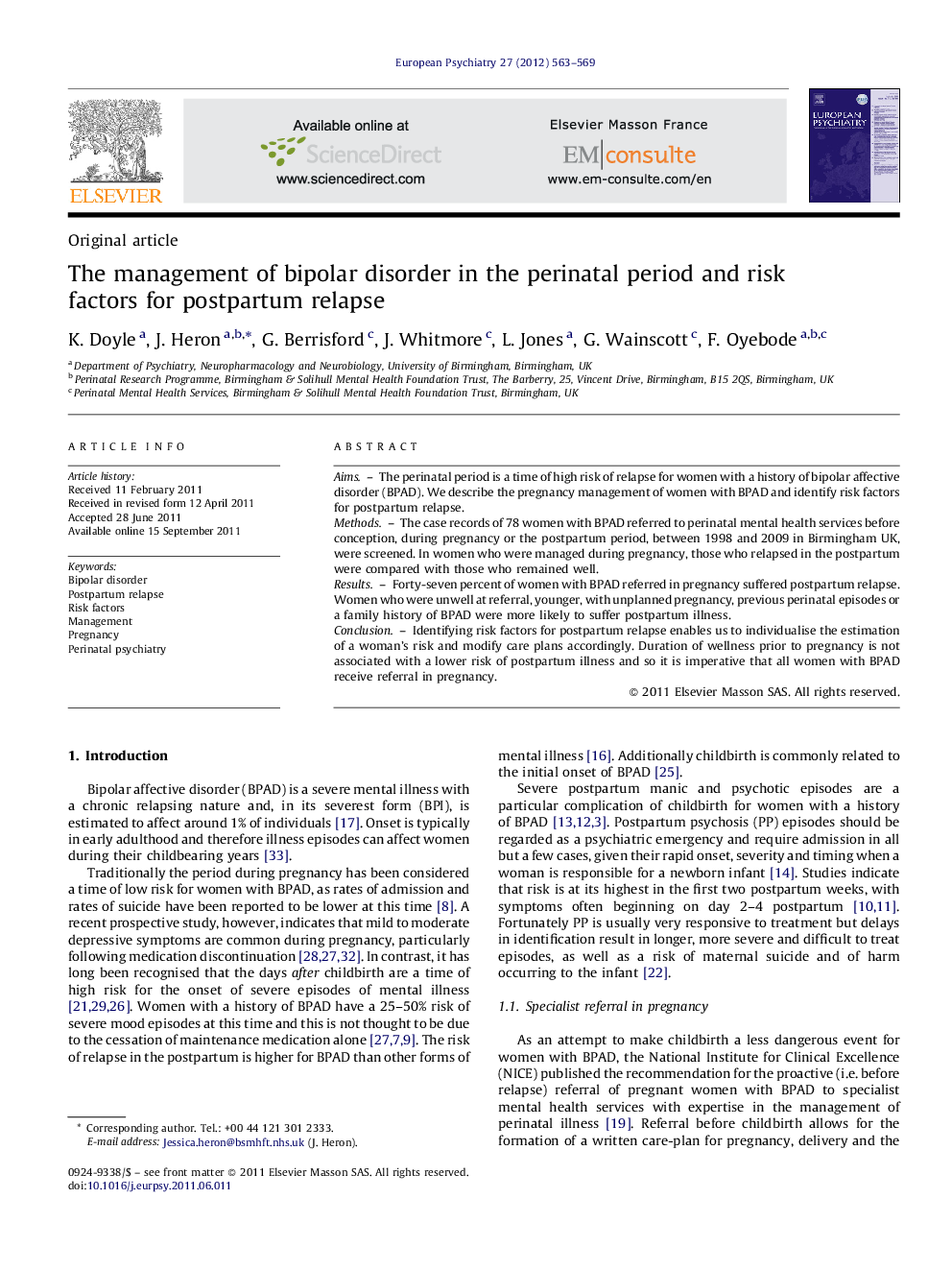| Article ID | Journal | Published Year | Pages | File Type |
|---|---|---|---|---|
| 4184168 | European Psychiatry | 2012 | 7 Pages |
AimsThe perinatal period is a time of high risk of relapse for women with a history of bipolar affective disorder (BPAD). We describe the pregnancy management of women with BPAD and identify risk factors for postpartum relapse.MethodsThe case records of 78 women with BPAD referred to perinatal mental health services before conception, during pregnancy or the postpartum period, between 1998 and 2009 in Birmingham UK, were screened. In women who were managed during pregnancy, those who relapsed in the postpartum were compared with those who remained well.ResultsForty-seven percent of women with BPAD referred in pregnancy suffered postpartum relapse. Women who were unwell at referral, younger, with unplanned pregnancy, previous perinatal episodes or a family history of BPAD were more likely to suffer postpartum illness.ConclusionIdentifying risk factors for postpartum relapse enables us to individualise the estimation of a woman's risk and modify care plans accordingly. Duration of wellness prior to pregnancy is not associated with a lower risk of postpartum illness and so it is imperative that all women with BPAD receive referral in pregnancy.
